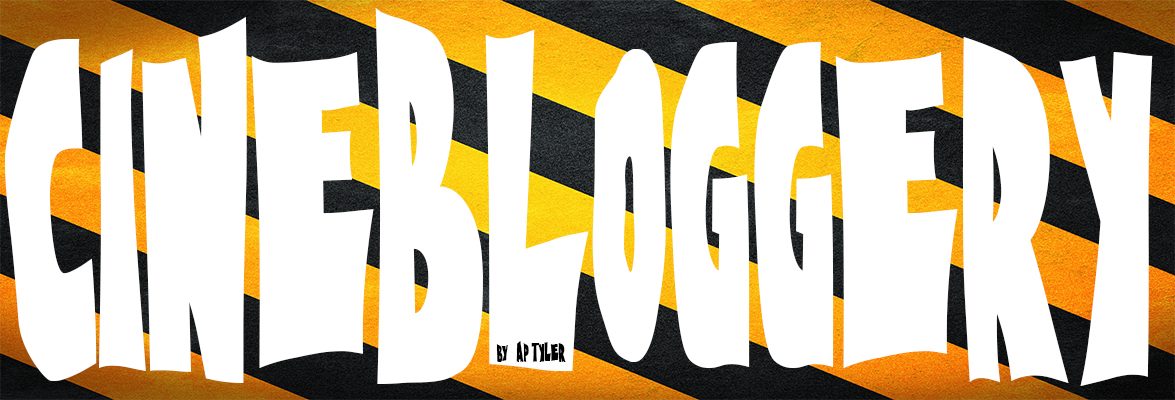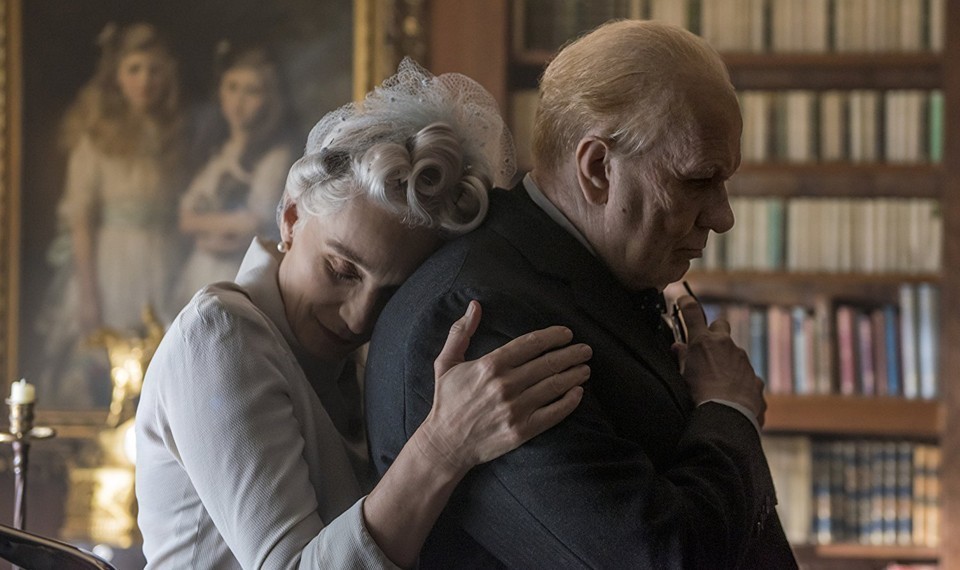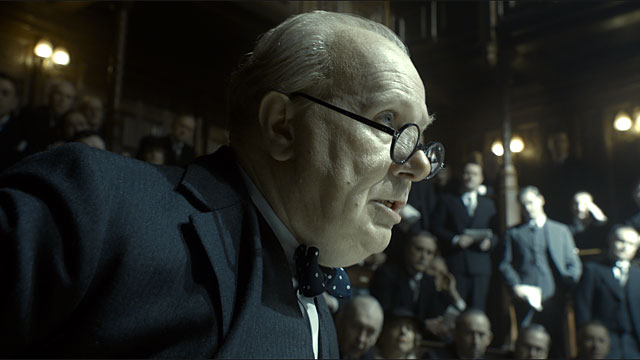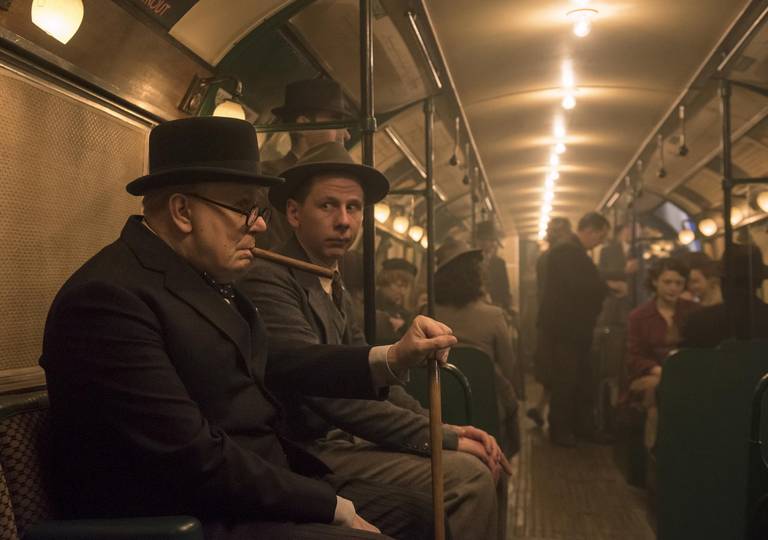He mobilised the English language and sent it into battle.
It’s not exactly fashionable to say these days, but I’ve always been quite obsessed with Winston Churchill as a historical figure. For all intents and purposes, Churchill was a man who wrote himself to be the protagonist of his story – and everyone else was just along for the ride. I can’t say I’m wholly on board with his ethics, or indeed much of his politics, but whatever your opinion of him, his stubbornness and ability to dig in his heels where necessary is truly impressive. What’s more, he had a truly incredible way with words.
I think I can pinpoint my fascination of Winston Churchill into a single man. My grandad. An amateur actor, my grandad would often rehearse and recite scripts wherever he went, and when I mentioned that I was studying the Second World War, or, you know, his 20s, at school, I was treated to something that will forever be lodged in my memory. He recited Churchill’s speeches. From memory.
He did a damn fine impression, too.
I don’t know for sure, but I’m willing to bet my grandad wasn’t exactly the exception to the rule. For an entire generation, maybe more, Churchill stood as the end-all and be-all of British determination and lasting might in a changing world. But he wasn’t perfect. An alcoholic, a smoker, an overweight curmudgeon – and plenty more to boot. Everyone knew it. No one cared.
You ask, what is our policy?
Directed by Joe Wright and written by Anthony McCarten, Darkest Hour (2017) follows Winston Churchill in his early days as Prime Minister of Great Britain. Europe is in full panic as Hitler’s Nazi regime marches westward, and Britain and France have found themselves unprepared for the German invasions. After a series of failed attempts at finding peace, Prime Minister Neville Chamberlain (Ronald Pickup) is forced to resign in order to establish a coalition government between the Conversatives and the Labour Party.
Unfortunately for the leading Tory party, there is only one man who both parties will agree to lead their coalition: Winston Churchill, the First Lord of the Admiralty (Gary Oldman).
An outspoken critic of the government during the so-called Phoney War, Churchill’s appointment was met with derision and disgust by many, including the lisping King George VI (Ben Mendelsohn) and Lord Halifax (Stephen Dillane), who appears to have his eyes firmly set on the role of Prime Minister – just as soon as Churchill can be ousted for incompetence.
When the audience is finally introduced to Churchill, we see him in the worst possible light. Specifically through the terrified eyes of his new secretary, Elizabeth Layton (Lily James). Wrapped in a revealing gown and still in bed, Churchill barks out his demands like a petulant child, or an elderly man being told that the new neighbours are planning on having a barbecue next Saturday. When he makes a speech to Parliament laying out his plans to fight with “Blood, toil, tears and sweat,” the resentment to his appointment grows – with many MPs thinking his refusal to negotiate peace would lead to absolute destruction.
Behind Churchill’s back, Chamberlain and Halifax agree that should they have it in writing that Churchill refuses to accept a negotiation with Hitler, through the Italian Ambassador in London, that they would resign – and spark a vote of no confidence in Parliament. So far, so Prequels, but you would be hard pressed to find a more urgent sense of back-handedness and political intrigue.
The pressure mounts as Churchill begins to understand the scale of the German invasion, this time of France. With the British Expeditionary Force in full retreat, it becomes clear that an imminent crisis is at hand. Desperate not to lose over 300,000 British soldiers at Dunkirk, the pressure mounts in the War Cabinet when Churchill orders the suicidal order for a small garrison in Calais to distract the Nazi war machine, long enough for Operation Dynamo to launch a rescue mission with the use of civilian boats to recover the British forces.
At his wits end, Churchill takes to a private room where he calls the US President Franklin D. Roosevelt, uncharacteristically begging the Chief of State for American forces to intervene. When this is declined, Churchill asks at least for the planes they had bought from the US – using money borrowed from the US – but this too is denied, due to the Neutrality Acts signed by Roosevelt.
With no country left in its path, the German invasion of Britain seems inevitable. Sullen and depressed, Churchill accepts that Halifax’s proposal to speak to the Italian Ambassador may be the only option left. When King George VI comes to visit Churchill at his home, he finds him sat awake in total darkness. George VI declares that he will not rule in exile – and expresses to Churchill that he stands with him. There should be no peace.
Later, Churchill is on his way to the War Cabinet when a thought occurs. Leaping from his cab, Churchill disappears into the streets of London. Heading deep into the bowels of the London Underground, he boards a carriage. Stunned, the people of London watch his arrival with awe. He introduces himself, and speaks at length with several passengers, eventually even accepting a light from a local bricklayer – a man the nation will be in dire need of soon, he quips.
One by one, the British people voice their opinion of the war. That they would sooner die than accept peace with Hitler. If you had to trim the entire film down to ten minutes, this scene is the one to keep. It epitomises everything that has happened to this point. We witness Churchill’s frailty, his humour, his childlike sense of wonder when speaking to others. Oldman’s portrayal of Churchill is consistently incredible, but in this small scene in a Tube train on the District Line we see the full range of his character.
While the scene is itself fictional, it is absolutely in tone with the real life Churchill – who would often disappear into the crowds of London – or indeed in theatres of war when visiting the troops later in the war – which just about sums up everything we see in Darkest Hour. You should always expect some form of poetic licence in a historical film, but with Darkest Hour you get the sense of what really happened, in about as true a light as is possible.
While the tube scene may not have been true to life, it – or the real life alternative – reinforces Churchill’s determination to fight on. He wins over many of his party through some masterful rhetoric, before marching into Parliament, proclaiming that “We shall fight on the beaches” should the Germans land on British soil. Winning over the room, Churchill marches out – triumphant.
Victory, at all costs.
I can’t stress enough how important Gary Oldman’s performance is to the success of Darkest Hour. A wonderful actor all round, Oldman took his role to the next level here, having built a relationship with Churchill’s living relatives, and witnessing first hand the evidence of stress and anxiety scratched into Churchill’s personal chair. His was a performance of weakness, of Churchill being a man at odds with himself, his peers and the world around him. We see much of his strength come from his wife Clementine (Kristin Scott Thomas), who rebukes and comforts him at every turn – and remains at his side, despite his darker moments.
Lily James, too, provides an excellent supporting role in Elizabeth Layton, giving us a human face to the events happening behind closed doors. To be honest, I can’t think of a single supporting role that felt unnecessary. Everyone felt correct, everyone felt like they added a further dimension to the story – and indeed to Churchill’s character as a whole.
On that topic, it would be crazy not to mention the insane amount of work that went into creating Churchill on set. It is said Oldman had to have over 200 hours of make up and prosthetics work to complete the look – and it shows. It is absolutely incredible what they managed to achieve, and had it not been Gary Oldman under it all, I challenge anyone to say that they could tell it wasn’t real.
Last by not least, the direction and cinematography (by Bruno Delbonnel) is absolutely stunning. Particularly the use of light and shadow throughout the film, with small moments highlighting Churchill’s loneliness and isolation – such as going up in a lift, with only the small space of the lift illuminated in a wall of darkness – really standing out to me. Occasional meaningful looks up to the sky from various characters felt a little weirder, as it each character was waiting for the narrator to tell them what to do next, but it’s easily forgiven in what must be one of my favourite pieces of British drama to come out in years.
Absolutely recommended. This should be shown in schools.
Yours, A P Tyler




Comments are closed, but trackbacks and pingbacks are open.